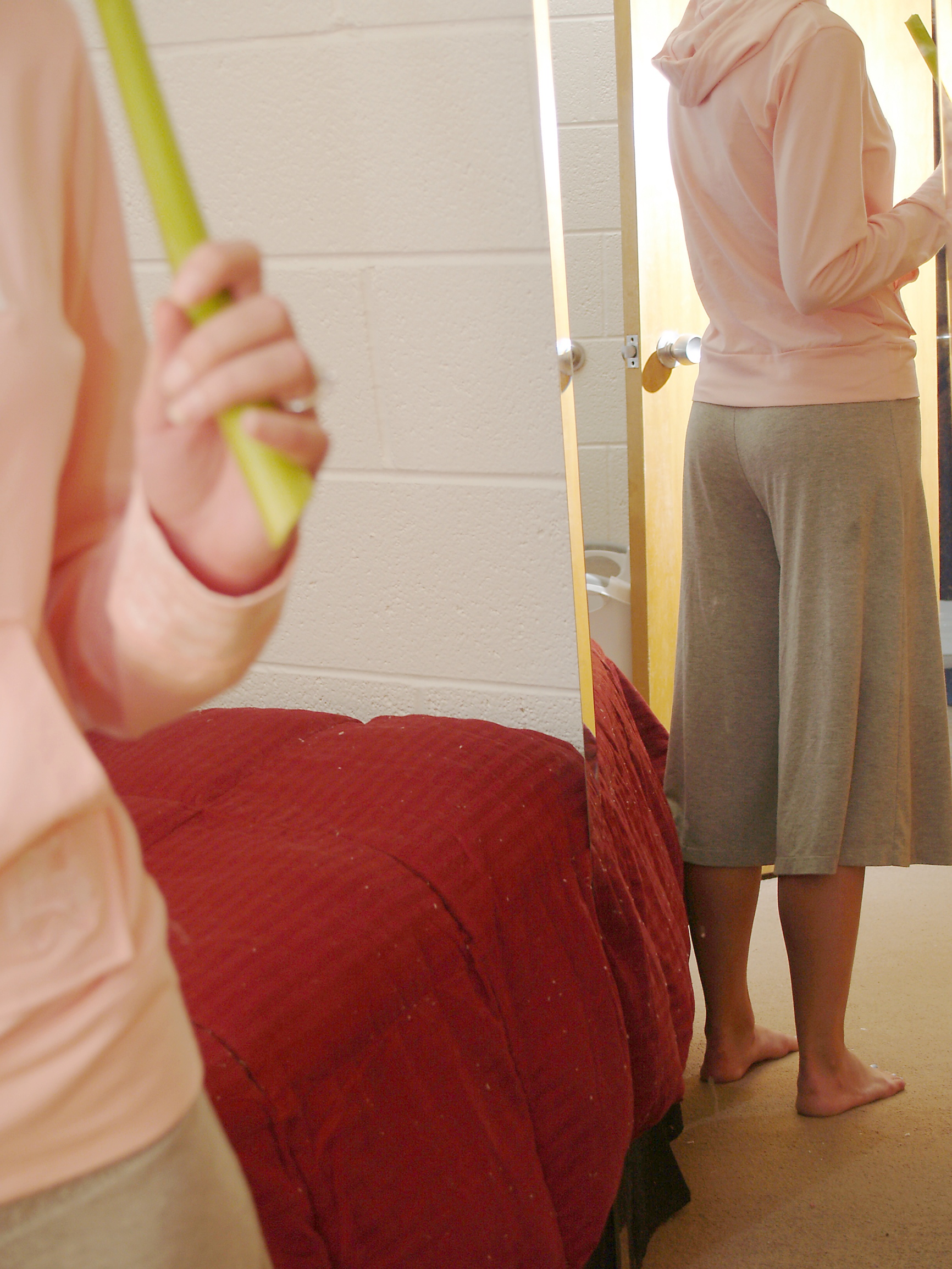Body image in the media: the negative side
Feel pressured to look a certain way? You’re not alone.
Eri Bentley, USU counseling staff therapist, said young people today can feel pressure from the media to obtain an ideal body image.
“Media has power and unfortunately they can define what society wants as beautiful,” Bentley said. “Young people are especially impressionable when they see media images; they don’t know it’s not real. If they feel that that is the way they need to look, they do feel pressured.”
A person’s perception of their body image is influenced by many factors including peers, family and the media.
“Friends who are into their appearance or family who are focused on appearance are more likely to have their kids self-conscious about their own body image. Even if it’s indirect influence, let’s say mom says ‘I need to lose weight,’ and you grow up hearing those kinds of messages, it does affect you. So the perception of your body image is affected by a combination of things,” Bentley said.
The diet industry can manipulate messages through media to make consumers think they have a problem, Bentley said.
“They’ll say ‘you have a problem, you’re overweight’ or ‘you have a problem because you don’t look this way,’ which creates discomfort to consumers and makes them want to change their appearance,” she said.
Bentley said these media messages have emotional impact on consumers and can make viewers feel worse about their body image.
“They’ll offer solutions to a problem you think you have. They say, ‘let me give you a solution, use a diet pill’,” Bentley said.
Dilpreet Ahluwalia, a senior in aviation technology, said he has been striving for an ideal body type of 180 pounds and have less than 8 percent body fat since the age of 17.
Five years later, Ahluwalia is still working on perfecting that image.
“I want a body like Christian Bale. He’s big and ripped. He has the kind of body that every boy wants to have,” he said.
At 11 percent body fat and 160 pounds, Ahluwalia says although it would be nice to meet his goal of obtaining more muscle mass, he’s all right with staying the way he is.
“I’m not self-conscious about my body, but I do want to get better. The media doesn’t make me feel negative about my body image but at the same time it pressures me to want to look better,” Ahluwalia said.
Ahluwalia believes beauty is defined by society and culture.
“The more I look at ads in the media, the more ideas I get about what is socially and culturally acceptable. I try to make your own body match that,” he said. “You never see a scrawny little guy (on ads), you always see some big, ripped defined guy. For example, the guy on the Axe body commercial is ripped, and it pisses me off.”
Marley Harris, a registered dietitian at the USU Wellness Center, said media tell people what we should be attracted to.
“Young people feel the pressure to conform to what is ideal. Media create an unrealistic ideal body type. Many of them are unattainable goals and should be promoting healthiness, not thinness,” she said.
Media mostly exist to sell and are not here to necessarily be our moral or social compass, Harris said.
“We see models and images media that tell us are ‘good’ but they do not portray a depiction of an average healthy American. A lot of who we are can come from what people tell us about ourselves,” Harris said.
Students who feel pressure to be a certain body shape and size but are a different size, even if it is a healthy weight, can feel like they have failed to meet the ideal, Harris said.
“The media can try to sell us the concept that if we look a certain way and buy their product then we will be happy and successful. Most often that is not true,” she said.
To combat the negative side effects of media ideals, the counseling center offers body image and eating issues counseling classes. To join counseling, contact Mary Doty, psychologist and Counseling center director.
–candice.sandness@aggiemail.usu.edu

